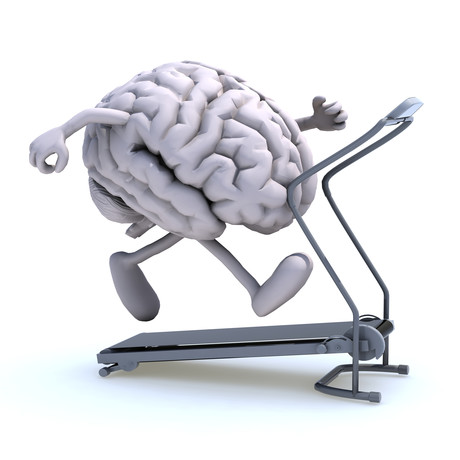Too much sitting may be bad for your brain (and your body)

We all know that exercise is good for our health, but it may also keep our brains healthy.
Researchers from The University of Western Australia, in collaboration with the Baker Heart and Diabetes Institute, are examining the prolonged negative impact that sitting might have on our brains.
In many aspects of our life when we need to use our brain power, we tend to sit down: at school, at work, reading, using our mobile phones or watching television. But this could be depriving our brains of a stable glucose supply required to function optimally.
UWA PhD student Michael Wheeler, lead researcher on the study, said glucose levels outside the optimal range can have a negative impact on brain health.
“Our brain weighs about 2% of our body mass but demands about 20% of our resting energy requirements, which is mostly in the form of glucose — the primary brain fuel,” Wheeler said.
“Sitting for long periods throughout the day alters our blood glucose levels, which in turn may affect the brain.”
Wheeler said multiple studies had demonstrated that reducing and replacing sitting with light-intensity walking helps keep glucose levels in the optimal range, particularly after food consumption. This means glucose levels do not spike too high or dip too low.
“Studies investigating the effects of excessive sitting on brain function have had mixed results so far,” Wheeler said.
“But what the studies do agree on is that interrupting sitting with regular activity breaks is positive for many aspects health.
“For scientists, the way in which sitting is likely to affect brain function still poses a research challenge. Based on the available evidence, it’s more likely that reducing sitting would slow cognitive decline, rather than improve cognitive function. Physical activity is also beneficial for other health outcomes.”
So what should people do to improve the health of their brains?
“Take a walk after lunch, wash the dishes by hand after dinner or take an active commute to and from work if possible,” Wheeler said.
“There is much opportunity to reduce sitting time throughout the day and, therefore, much potential to have a positive impact on our health.”
Hospital fined $230K after aged care chair detachment
A hospital has been fined $230,000 over an incident involving a 93-year-old aged care resident...
Alliance to lay foundations for national creative health infrastructure
Creative Health Alliance Australia launched this month, in order to lay the foundations for...
Ramsay to close 17 psychology clinics by end of August
Ramsay Health Care has announced the progressive closure of 17 psychology clinics by the end of...

![[New Zealand] Transform from Security Awareness to a Security Culture: A Vital Shift for SMB Healthcare — Webinar](https://d1v1e13ebw3o15.cloudfront.net/data/89856/wfmedia_thumb/..jpg)
![[Australia] Transform from Security Awareness to a Security Culture: A Vital Shift for SMB Healthcare — Webinar](https://d1v1e13ebw3o15.cloudfront.net/data/89855/wfmedia_thumb/..jpg)




